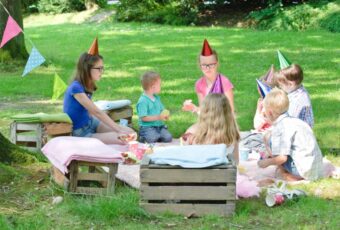The transition to an empty nest, marked by the departure of children to pursue their own adventures, can be a challenging and emotionally charged period for parents. However, this new phase of life also offers an opportunity for personal growth, rediscovery, and the strengthening of relationships. Here are some coping strategies to navigate the journey of being an empty nester.

Acknowledge Emotions
First and foremost, it’s essential for empty nesters to acknowledge and embrace their emotions. The departure of children often brings a mix of feelings, including sadness, nostalgia, and even excitement for what lies ahead. Taking the time to process these emotions is crucial for mental well-being. Seeking support from friends, family, or even joining a community group for empty nesters can provide a platform for sharing experiences and finding comfort in shared challenges.
A key aspect of coping with an empty nest is rediscovering personal passions and interests. Many parents have dedicated years to raising children, and now is an opportune time to revisit hobbies, career aspirations, or travel dreams that may have been put on hold. Engaging in activities that bring joy and fulfillment can help fill the void left by the absence of children at home and foster a sense of purpose.

Foster Personal Passions And Projects
Maintaining and nurturing relationships with a partner is another crucial element of navigating the empty nest phase. With children no longer occupying the central role in daily life, couples have the chance to rekindle their connection, rediscover shared interests, and embark on new adventures together. This period can be an opportunity to strengthen the foundation of the relationship and build a vibrant life as a couple.
Empty nesters should also focus on self-care and well-being. Establishing a healthy routine that includes regular exercise, proper nutrition, and sufficient sleep is vital for maintaining physical and mental health. This self-care routine can provide a sense of structure and purpose, helping to counteract the potential feelings of emptiness that may arise.

Focus On Self Care
Volunteering and giving back to the community can be a fulfilling way for empty nesters to channel their time and energy. Contributing to charitable causes or local organizations not only provides a sense of purpose but also creates opportunities to meet new people and form connections outside the immediate family circle.
Lastly, maintaining open lines of communication with adult children is crucial during the empty nest phase. Regular check-ins, visits, and shared experiences help bridge the physical gap while allowing parents to remain an active and supportive part of their children’s lives. Embracing the evolving nature of the parent-child relationship can lead to a deeper and more meaningful connection in the years to come.

Keep Open Lines Of Communication
The empty nest phase is a transformative period that, while challenging, offers opportunities for personal growth, rekindled relationships, and new adventures. By acknowledging and embracing emotions, rediscovering personal passions, nurturing relationships, prioritizing self-care, contributing to the community, and staying connected with adult children, empty nesters can navigate this transition with resilience and optimism.

Accept This New Chapter








